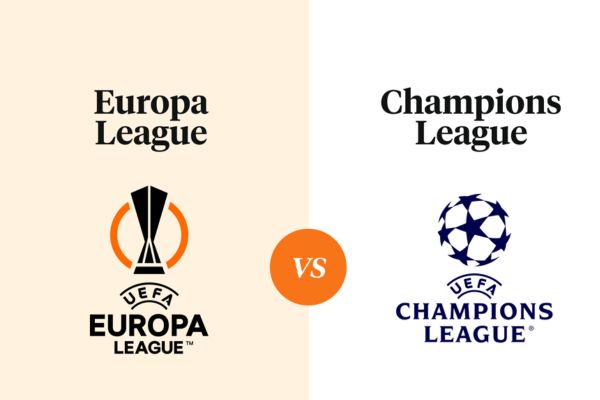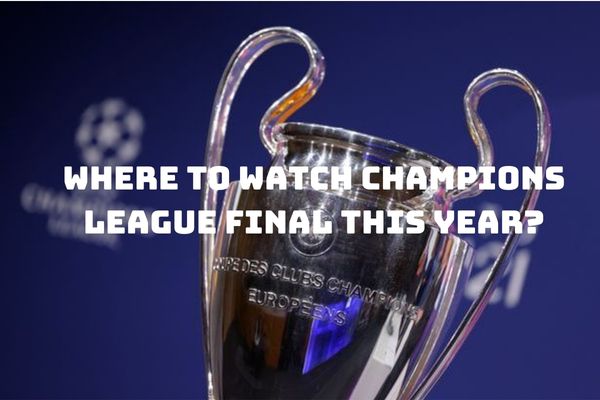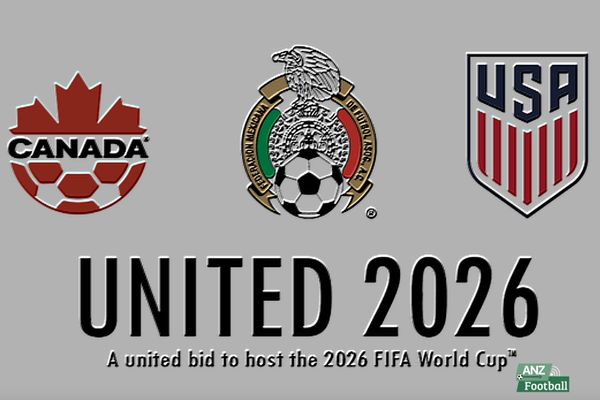Ecuador's Missing Goal Controversy: When Technology Makes a Big Contribution to World Cup 2022
1 year agoAlthough World Cup 2022 uses a very modern semi-automatic offside system, you still don't believe it. That's what football fans say after Ecuador's early goal was denied by VAR technology.
Perhaps this is the most unusual situation on the opening day of this year's World Cup when the mass media are trying to cover this offside situation of Ecuador. So why is the offside situation of the Ecuadorian players attracting so much attention? Join us to find the answer in today's article.
ANZFootball brings all hot live football today to enjoy from anywhere.
Before the match Qatar vs Ecuador
The host of this year's World Cup has brought to the audience impressive performances with a mixture of many cultures around the world. About 60,000 seats were filled at Al Bayt Stadium to enjoy the most special football party in the biggest football festival in the world.
In addition to traditional performances, host Qatar helps fans relive memories from previous World Cups through a mashup of once-famous theme songs like Waka Waka, Wavin' Flag, and even mascots of past tournaments.
The fans also enjoyed the exciting atmosphere through a spectacular light and sound show, with the participation of top artists such as BTS's Jung Kook or Fahad Al-Kubaisi.
Enjoy World Cup 2022 live match today with a single click only!
Ecuador's controversial offside situation
Opening the most awaited match of the year - the opening match of the World Cup 2022, players from both teams Qatar and Ecuador came out with a spirit of great enthusiasm. They will be the special names running the first steps on the field at this World Cup.
Contrary to what is expected for a balanced and attractive game, while Qatar is the defending champion of the Asian Cup, ie the strongest team in Asia, the pressure was pushed up very high by representatives of South America from the first minutes. The home players seemed overwhelmed in their first World Cup appearance, even though they had had time to prepare and waited for a long time for this day.
In the 3rd minute of the first half at Al Bayt, a remarkable situation happened. The Ecuadorian's No. 2 player, Felix Torres, jumped into a dispute with Asiad, Qatar's goalkeeper, opening a messy situation in the home team's penalty area. Then the number 1 player, Michael Estrada, headed the ball for Torres to hit the ball, allowing Enner Valencia to beat the defenders who made a close header into the net of Qatar.
However, as the Ecuadorian players ran to celebrate the first goal of the World Cup, and most fans were sure that it was a goal for Enner Valencia, The player pointed his finger to indicate it was an invalid goal. VAR referee assist technology stepped in and determined an invalid goal due to Estrada's offside.
According to FIFA rules, offside is the positional error of a player on the pitch, defined as the error of a player receiving the ball to attack the opposing side of the field without two opposing players in front. In this controversial situation, Estrada broke the rules when receiving the ball. Experts analyze further:
When goalkeeper Al Sheeb rushed out, he was counted as a player. Meanwhile, by the time the ball left after Torres' dispute, the Estrada striker's foot was below the keeper and just above a Qatar defender. Therefore, the Ecuadorian player was determined to be offside.
After about 10 minutes, the organizers gave proof of Ecuador's error. Michael Estrada's semi-automatic offside technology detects that one leg is higher than the last Qatar defender. A similar situation to the disallowing situation of Enner Valencia also occurred in the Champions League final season 2021-22 between Real Madrid and Liverpool. Karim Benzema's goal in the last minutes of the first half when he received the ball and finished the goal was only standing above a central defender of the representative of England.
Semi-automatic technology at the World Cup 2022
On July 1, FIFA announced the application of semi-automatic offside detection technology at the 2022 World Cup. This technology helps referees reduce the decision time by half, from 70 seconds to 30 seconds compared to the traditional VAR team. The technology first debuted in 2019 and was first tested at the FIFA Arab Cup in Qatar late last year. Offside situations will be simulated in 3D by the combination of 12 cameras mounted under the roofs of stadiums with a high-tech ball.
The Al Rihla ball used at the 2022 World Cup has a sensor that transmits position data 500 times per second to the VAR room. Optical tracking data considers 29 data points. Each player's movement and the position of the ball are analyzed at a rate of 50 times per second. Before the 2022 World Cup kicks off, this technology has been tested in a number in Champions League games.
Back in the match between Qatar and Ecuador, after escaping defeat in that situation, the players of the home team Qatar still played very awkwardly. Although supported by technology, the heat of the biggest football festival on the planet still makes the players' feet overwhelmed, without the necessary serenity. In the end, Qatar is still the losing team. Enner Valencia, after being caught offside by technology, stole the goal, and also got a brace on the opening day of the World Cup.
The loss probably makes Qatar a team that is also in danger of being eliminated early because their next two opponents are much stronger, the Netherlands and Senegal. Here, we will not talk about match results or each team's ability to advance and will talk about this new semi-automatic capture technology. In the previous World Cup 2018, VAR technology was also applied for the first time and this time, the semi-automatic offside catch technology is even more sophisticated and classier than VAR.
Football and technology
But everything has two sides. In the 2018 World Cup, the statistics show huge changes since VAR appeared, from penalty cards, penalty situations, offside, and goals recognized and disallowed. There is no denying that technology will make matches more objective and accurate. There will be no more phenomena like the hand of God created by Maradona, or tricky situations that will rarely appear. But it's also hard to say that this is 100% a good thing.
Sometimes the truth should not be exposed, because its nature will benefit the majority. Same with semi-automatic technology. Just like VAR, it will lose the naturalness inherent in football. With the naked eye, we observe, it will certainly be a goal. Football is a story of emotions. Stories like the hand of god are deceitful, but they are also part of football. After that, if you repeat it again, it will be much more interesting. The sweet aftertaste of victory or the bitterness of defeat will certainly not be as deep as it was before when developed technologies appeared more and more.
Referees are certainly affected by the emergence of technology as well. Sometimes it is fear, not daring to believe in their decisions, and then being completely dependent on technology. Thus, the black-shirt men also greatly reduced their own prestige.
Not to mention that sometimes technology has appeared but still causes a lot of controversies. Because even a machine, absolute or perfect is not possible because it is a natural law. Machines are man-made after all, and when humans can't be perfect, they can't ask machines to have it. Equity if inherently perfect, we would not have to tire of centuries of efforts to change.
Conclusion
Sometimes, football is a story of emotions. Football is a spice of life, even a religion or even the spiritual life of people who love this sport, no matter how their favorite team loses or wins. Since then, it has brought people more experience and love for this subject.
But anyway, let's not forget to completely deny what technology brings. Get used to and adapt to what is about to happen. Anything at this year's World Cup will bring fans extremely interesting experiences. Just enjoy because the World Cup only comes once every four years, especially the special World Cup that takes place in winter like this.
Other news

Champions League vs. Europa League: Which One is Better?
1 year ago
Champions League vs Premier League: What Is The Key Difference?
1 year ago
Where to watch the Champions League final? Ultimate Guideline 2023
1 year ago
Top 5 Best Strikers In Europe 2023
1 year ago
Eden Hazard Biography and His Up and Down Football Career
1 year ago